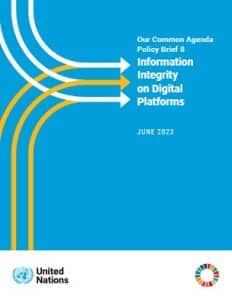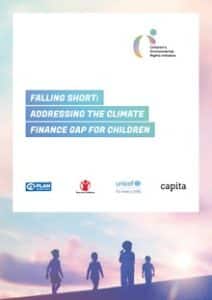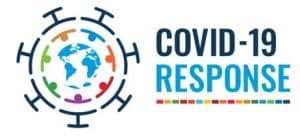New UN websites & publications
UN in General

English: https://unstats.un.org/sdgs/report/2023/
additional languages forthcoming
The Sustainable Development Goals Report 2023: Special Edition provides a powerful call to action, presenting a candid assessment of the SDGs based on the latest data and estimates. While highlighting the existing gaps and urging the world to redouble its efforts, the report also emphasizes the immense potential for success through strong political will and the utilization of available technologies, resources, and knowledge. Together, the global community can reignite progress towards achieving the SDGs and create a brighter future for all. According to the report, the impacts of the climate crisis, the war in Ukraine, a weak global economy, and the lingering effects of the COVID-19 pandemic have revealed weaknesses and hindered progress towards the Goals. The report further warns that while lack of progress is universal, it is the world’s poorest and most vulnerable who are experiencing the worst effects of these unprecedented global challenges. It also points out areas that need urgent action to rescue the SDGs and deliver meaningful progress for people and the planet by 2030.
Our Common Agenda: Policy Brief 8: Information Integrity on Digital Platforms
English: https://www.un.org/sites/un2.un.org/files/our-common-agenda-policy-brief-information-integrity-en.pdf
French: https://www.un.org/sites/un2.un.org/files/our-common-agenda-policy-brief-information-integrity-fr.pdf
Spanish: https://www.un.org/sites/un2.un.org/files/our-common-agenda-policy-brief-information-integrity-es.pdf
A/77/CRP.1/ADD.7 in English, French & Spanish: https://undocs.org/A/77/CRP.1/ADD.7
“Summary: … The present policy brief is focused on how threats to information integrity are having an impact on progress on global, national and local issues. In Our Common Agenda, I called for empirically backed consensus around facts, science and knowledge. To that end, the present brief outlines potential principles for a code of conduct that will help to guide Member States, the digital platforms and other stakeholders in their efforts to make the digital space more inclusive and safe for all, while vigorously defending the right to freedom of opinion and expression, and the right to access information. The code of conduct for information integrity on digital platforms is being developed in the context of preparations for the Summit of the Future. My hope is that it will provide a gold standard for guiding action to strengthen information integrity. …”
Previously issued policy briefs are available here:
English – https://www.un.org/en/common-agenda/policy-briefs
French – https://www.un.org/fr/common-agenda/policy-briefs
Spanish – https://www.un.org/es/common-agenda/policy-briefs
German – https://www.un.org/Depts/german/de/oca.html
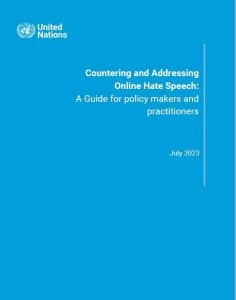
https://bit.ly/3PNC7w7
The UN Office on Genocide Prevention and the Responsibility to Protect has launched on 5 July 2023 a new policy paper on countering and addressing hate speech online. The policy paper was developed jointly by the UN Office with the Economic and Social Research Council (ESRC) Human Rights, Big Data and Technology Project at the University of Essex. The policy paper builds upon earlier initiatives, including The UN Strategy and Plan of Action on Hate Speech, which seeks to enhance the UN’s response to the global spread and impact of hate speech. The Strategy makes a firm commitment to step up coordinated action to tackle hate speech, both at global and national levels, including the use of new technologies and engaging with social media to address online hate speech and promote positive narratives.
Economic Growth and Sustainable Development
2023 Gender Social Norms Index (GSNI): Breaking down gender biases; Shifting social norms towards gender equality (UNDP)
https://hdr.undp.org/content/2023-gender-social-norms-index-gsni
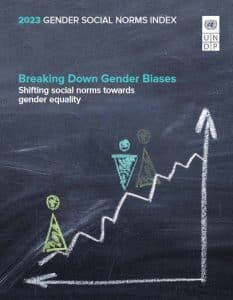
Atlas of Sustainable Development Goals 2023
https://datatopics.worldbank.org/sdgatlas/
The Atlas of Sustainable Development Goals 2023 presents interactive storytelling and data visualizations about the 17 Sustainable Development Goals. It highlights trends for selected targets within each goal and introduces concepts about how some SDGs are measured. The Atlas draws from the World Bank’s World Development Indicators database, as well as from a wide variety of relevant data sources, including international organizations, scientists, and other researchers worldwide.
Children & UNCCD: The Land and WorkBook
https://www.unccd.int/news-stories/special-feature/future-our-planet-all-children-world

Compilation of main messages for the 2023 Voluntary National Reviews: Note by the Secretariat (E/HLPF/2023/5, 5 May 2023)
English, French & Spanish: https://undocs.org/E/HLPF/2023/5
The Secretariat transmits herewith the main messages of voluntary national reviews of 36 Member States (including Belgium, France, Iceland, Ireland, Portugal) and the European Union, in connection with the 2023 high-level political forum on sustainable development, in accordance with General Assembly resolutions 67/290, 70/1 and 70/299.
Falling Short: Addressing the climate finance gap for children
https://reliefweb.int/report/world/falling-short-addressing-climate-finance-gap-children-enar
Children are being failed by climate funding commitments, despite bearing the brunt of the climate crisis, according to a new report from members of the Children’s Environmental Rights Initiative (CERI) coalition; Plan International, Save the Children, and UNICEF. Just 2.4 percent of key global climate funds can be classified as supporting child-responsive activities, the report finds. According to UNICEF’s Children’s Climate Risk Index, more than a billion children are at extremely high risk of the impacts of the climate crisis.
From Evidence to Action: Twenty Years of IOM Child Trafficking Data to Inform Policy and Programming
https://publications.iom.int/books/evidence-action-twenty-years-iom-child-trafficking-data-inform-policy-and-programming

The Hidden Wealth of Nations: Groundwater in Times of Climate Change (World Bank)
https://www.worldbank.org/en/topic/water/publication/the-hidden-wealth-of-nations-groundwater-in-times-of-climate-change
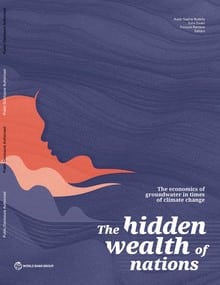
Occupational safety and health in the future of forestry work (FAO / UNECE)
https://unece.org/info/publications/pub/380802

Policies to protect children from the harmful impact of food marketing: WHO guideline
https://www.who.int/publications/i/item/9789240075412
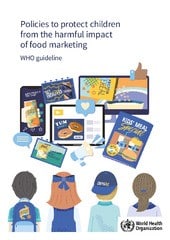
Progress on household drinking-water, sanitation and hygiene 2000-2022: Special focus on gender
https://www.who.int/publications/m/item/progress-on-household-drinking-water–sanitation-and-hygiene-2000-2022—special-focus-on-gender
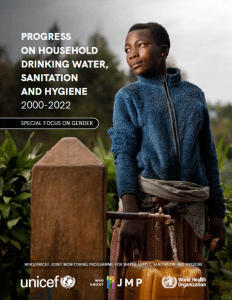
Rethinking our Food Systems: A Guide for Multi-stakeholder Collaboration
https://www.undp.org/publications/rethinking-our-food-systems-guide-multi-stakeholder-collaboration
UNEP, FAO, and UNDP have come together to consolidate learnings and tools, gathered from within and beyond the three UN agencies in order to provide a practical guide for multi-stakeholder collaboration. This guide is intended for institutions and facilitators responsible for leading multi-stakeholder initiatives that are inclusive of government and essential non-governmental actors committed to contributing to the sustainable transformation of food systems.
Water, Sanitation, Hygiene, Waste and Electricity Services in Health Care Facilities: 2023 Global Progress Report (WHO / UNICEF)
https://www.who.int/publications/i/item/9789240075085

WHO/UNICEF How to build an infodemic insights report in 6 steps
https://www.who.int/publications/i/item/9789240075658
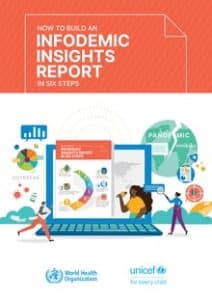
Women as Agents of Change for Greening Agriculture and Reducing Gender Inequality (UNDP Development Futures Series)
https://www.undp.org/publications/women-agents-change-greening-agriculture-and-reducing-gender-inequality
The policy brief highlights the essentiality of women in agriculture and their potential role in shifting to sustainable agriculture, increasing food security and increasing agricultural productivity when they have access and ability to adopt innovative agriculture techniques such as climate-smart agriculture practices (CSA). This policy brief identifies key actions that can remove barriers or women in agriculture, including collection of gender disaggregated data for gender-sensitive planning, research analysis, advocacy for equitable access to productive assets, capacity building and awareness raising, and cross-sector collaborations to enable gender-equitable access to infrastructure, financial capital, productive assets and other services.
World Drug Report 2023 (UNODC)
https://www.unodc.org/unodc/en/data-and-analysis/world-drug-report-2023.html
Continued record illicit drug supply and increasingly agile trafficking networks are compounding intersecting global crises and challenging health services and law enforcement responses, according to the World Drug Report 2023 launched by the UN Office on Drugs and Crime (UNODC) on 26 June 2023. New data put the global estimate of people who inject drugs in 2021 at 13.2 million, 18 per cent higher than previously estimated. Globally, over 296 million people used drugs in 2021, an increase of 23 per cent over the previous decade. The number of people who suffer from drug use disorders, meanwhile, has skyrocketed to 39.5 million, a 45 per cent increase over 10 years. The Report features a special chapter on drug trafficking and crimes that affect the environment in the Amazon Basin, as well as sections on clinical trials involving psychedelics and medical use of cannabis; drug use in humanitarian settings; innovations in drug treatment and other services; and drugs and conflict. The World Drug Report 2023 also highlights how social and economic inequalities drive – and are driven by – drug challenges; the environmental devastation and human rights abuses caused by illicit drug economies; and the rising dominance of synthetic drugs.
For the first time since its conception, this year the World Drug Report consists of two products, a web-based element and a set of booklets. The latest global, regional and subregional estimates of and trends in drug demand and supply are presented in a user-friendly, interactive online segment. While Special points of interest include key takeaways and policy implications, booklet 1 takes the form of an executive summary based on analysis of the key findings of the online segment and the thematic booklet 2 and the conclusions that can be drawn from them. In addition to providing an in-depth analysis of key developments and emerging trends in selected drug markets, including in countries currently experiencing conflict, booklet 2 focuses on a number of other contemporary issues related to drugs.
World Investment Report 2023: Investing in sustainable energy for all (UNCTAD)
Report in English, Executive Summary in English, French & Spanish:
https://unctad.org/publication/world-investment-report-2023
The United Nations Conference on Trade and Development (UNCTAD) called on 5 July 2023 for urgent support to developing countries to enable them to attract significantly more investment for their transition to clean energy. UNCTAD’s World Investment Report 2023 shows that much of the growth in international investment in renewable energy, which has nearly tripled since the adoption of the Paris Agreement in 2015, has been concentrated in developed countries. Developing countries need renewable energy investments of about $1.7 trillion annually but attracted foreign direct investment in clean energy worth only $544 billion in 2022, according to the report. Total funding needs for the energy transition in developing countries are much larger and include investment in power grids, transmission lines, storage and energy efficiency.
WTO Report on G20 Trade Measures (mid-October 2022 to mid-May 2023)
https://www.wto.org/english/news_e/news23_e/trdev_04jul23_e.htm
G20 economies introduced substantially more trade-facilitating than trade-restrictive measures on goods between mid-October 2022 and mid-May 2023. However, several export restrictions on food, feed and fertilizers remained in place, compromising the predictable flow of food through international markets and contributing to price volatility at a time when food affordability remains a major global concern. The WTO Trade Monitoring Report on G20 trade measures, issued on 4 July, shows that the war in Ukraine, COVID-19 after-effects, extreme weather and high food and energy prices continue to cause uncertainty in global trade.
Coronavirus Disease (COVID-19)
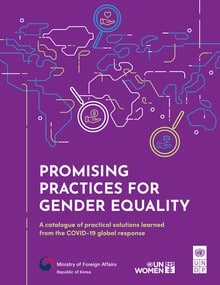
https://www.undp.org/publications/promising-practices-gender-equality
This catalogue provides a directory of 37 promising policy measures that can support countries to better respond to future crises, and to build more gender-equitable societies and economies. These measures are the most promising practices distilled among the 5,000 policy measures adopted by governments in response to the pandemic and monitored by the UNDP-UN Women COVID-19 Global Gender Response Tracker.
International Peace and Security
Children and armed conflict: Report of the Secretary-General (A/77/895-S/2023/363, 5 June 2023)
English, French & Spanish: https://undocs.org/A/77/895
As protracted and new armed conflicts have continued to rage in 2022, the number of children affected by hostilities has remained shockingly high at almost 19,000 children in the 24 situations and one regional monitoring arrangement on the Children and Armed Conflict Agenda, according to this new report. Blatant and systematic disregard for international humanitarian law and international human rights law continues to severely impact the protection of children. The UN Secretary-General Annual Report on Children and Armed Conflict revealed the grim reality faced by these children who were recruited or used, killed, or maimed, raped or victims of sexual violence, or abducted. Their schools and hospitals were damaged or destroyed, and access to aid for children has been repeatedly denied. However, this is sadly only the verifiable tip of the iceberg. The real number is certainly considerably higher, and this realization hints at a much larger and profoundly distressing human tragedy. In 2022, the number of verified grave violations affecting children in the situation of the CAAC agenda, including those lately added namely Ethiopia, Mozambique, and Ukraine reached 27,180. While non-State armed groups were responsible for 52% of the grave violations overall, Government forces were the main perpetrator particularly in the killing and maiming of children, attacks on schools and hospitals, and the denial of humanitarian access.
Concept note for the Security Council high-level briefing on the topic “Cooperation between the United Nations and regional and subregional organizations (League of Arab States)”
English, French & Spanish: https://undocs.org/S/2023/407
As President of the Security Council for the month of June 2023, the United Arab Emirates convened a high-level briefing on the topic “Cooperation between the United Nations and regional and subregional organizations (League of Arab States)”, on 8 June 2023. In order to guide the discussions on the topic, the United Arab Emirates has prepared this concept note.
Concept note for the ministerial-level open debate of the Security Council on the theme “Threats to international peace and security: climate change, peace and security”
English, French & Spanish: https://undocs.org/S/2023/408
The United Arab Emirates, in its capacity as President of the Security Council for the month of June 2023, convened a ministerial-level open debate on the theme “Threats to international peace and security: climate change, peace and security”, on 13 June 2023. In order to guide the discussions on this topic, the United Arab Emirates has prepared this concept note.
Concept note for the Security Council briefing on the theme “Maintenance of international peace and security: the values of human fraternity in promoting and sustaining peace”
English, French & Spanish: https://undocs.org/S/2023/417
The United Arab Emirates, in its capacity as president of the Security Council for the month of June 2023, held a ministerial-level briefing, in connection with the item entitled “Maintenance of international peace and security”, on the theme “The values of human fraternity in promoting and sustaining peace”. This concept note was prepared for the meeting.
Concept note for the Security Council open debate on the theme “Conflict-related sexual violence: promoting implementation of Security Council resolutions on conflict-related sexual violence”
English, French & Spanish: https://undocs.org/S/2023/476
In its capacity as President of the Security Council for July 2023, the United Kingdom organized an open debate on the theme “Conflict-related sexual violence: promoting implementation of Security Council resolutions on conflict-related sexual violence”, on 14 July 2023. In order to guide the discussions on this topic, the United Kingdom has prepared this concept note.
Human Rights
The Convention on the Elimination of All Forms of Discrimination against Women and its Optional Protocol: Handbook for Parliamentarians (revised edition) (OHCHR / IPU)
https://www.ohchr.org/sites/default/files/documents/publications/OHCHR-IPU-CEDAW-Handbook-revised-edition.pdf

Detention of civilians in the context of the armed attack by the Russian Federation against Ukraine, 24 February 2022 – 23 May 2023 (OHCHR)
https://www.ohchr.org/en/documents/country-reports/detention-civilians-context-armed-attack-russian-federation-against
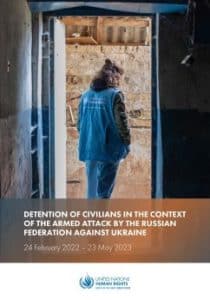
Protecting women human rights defenders in migration contexts (UN Women Policy Brief)
https://www.unwomen.org/en/digital-library/publications/2023/06/policy-brief-protecting-women-human-rights-defenders-in-migration-contexts
Around the world, women, girls, and gender-diverse people play a crucial role in promoting and protecting the rights of people on the move. They do so in numerous ways, such as by rescuing those in distress at land and sea and accompanying migrants on dangerous journeys. Some provide shelter, transport, healthcare, education, legal aid, and integration support to people at different stages of migration. Others document human rights violations and advocate for laws, policies, and practices that protect the rights of migrants, refugees, and stateless persons. However, migrant women human rights defenders face significant risks as they do so, such as stigmatization, criminalization, surveillance, physical attacks, and sexual and gender-based violence from both state and non-state actors. Women human rights defenders who are migrants themselves, especially those in an irregular situation, often face higher risks due to their migration status, such as arrest, detention, deportation, and refoulement. They may also be subject to torture or cruel, inhuman, and degrading treatment; some have been killed or forcibly disappeared. It is critical for states to respect, protect, and fulfil the rights of migrant women human rights defenders. This policy brief outlines measures that states can take to create an enabling environment for the defence of human rights and to secure the rights of women, girls, and gender-diverse people at all stages and in all types of migration, so that they can defend their own rights and the rights of others.
The relations between climate change and child labour in agriculture (FAO)
https://www.fao.org/documents/card/en/c/cc6244en
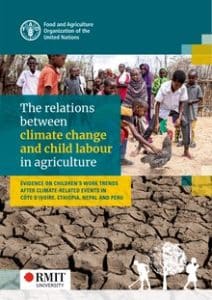
Situation of women and girls in Afghanistan – Report of the Special Rapporteur on the situation of human rights in Afghanistan and the Working Group on discrimination against women and girls (A/HRC/53/21, 15 June 2023, Advance edited version)
https://www.ohchr.org/en/documents/country-reports/ahrc5321-situation-women-and-girls-afghanistan-report-special-rapporteur
In the present report, the Special Rapporteur on the situation of human rights in Afghanistan and the Working Group on discrimination against women and girls describe the widespread and systematic discrimination to which women and girls in Afghanistan are subjected, particularly since the fall of the Islamic Republic of Afghanistan on 15 August 2021. They also highlight the resilience and strength of Afghan women in the face of such repressive conditions.
Toolkit: ratifying the Optional Protocol to the Convention against Torture and Other Cruel, Unhuman, or Degrading Treatment or Punishment (OPCAT)
English: https://www.ohchr.org/sites/default/files/2023-06/Toolkit-OPCAT_Ratification.pdf
French: https://www.ohchr.org/sites/default/files/2023-07/Toolkit-OPCAT_Ratification-FR.pdf
This toolkit presents the benefits of ratifying the Optional Protocol to the Convention against Torture and Other Cruel, Unhuman, or Degrading Treatment or Punishment (OPCAT), answers questions on its content and application, and provides a simplified version of the provisions of the Optional Protocol.
Toolkit: ratifying the Convention on the Rights of Persons with Disabilities
English: https://www.ohchr.org/sites/default/files/2023-06/En-CRPD-Ratification-Toolkit.pdf
French: https://www.ohchr.org/sites/default/files/2023-07/FRE-CRPD-Ratification-Toolkit.pdf
This toolkit presents the benefits of ratifying the Convention on the Rights of Persons with Disabilities (OP-CRPD), answers questions on its content and application, and provides a simplified version of the provisions of the Optional Protocol.
Toolkit: ratifying the Optional Protocol to the Convention on the Rights of Persons with Disabilities
English: https://www.ohchr.org/sites/default/files/2023-06/En-OP-CRPD-Ratification-Toolkit.pdf
French: https://www.ohchr.org/sites/default/files/2023-06/Fr-OP-CRPD-Ratification-Toolkit.pdf
Spanish: https://www.ohchr.org/sites/default/files/2023-06/Sp-OP-CRPD-Ratification-Toolkit.pdf
This toolkit presents the benefits of ratifying Optional Protocol to the Convention on the Rights of Persons with Disabilities (OP-CRPD), answers questions on its content and application, and provides a simplified version of the provisions of the Optional Protocol.
Humanitarian Affairs
2022 Middle East and North Africa overview of missing migrants data (IOM)
https://missingmigrants.iom.int/sitreps/missing-migrants-project-annual-regional-overview-2022-mena
Nearly 3,800 people died on migration routes within and from the Middle East and North Africa (MENA) region last year (January-December 2022), the highest number since 2017 when 4,255 deaths were recorded according to newly released data from the International Organization for Migration’s (IOM) Missing Migrants Project (MMP). The 3,789 deaths recorded in 2022 was 11 per cent higher than the previous year. The MENA region accounted for more than half of the total 6,877 deaths recorded worldwide by the MMP, according to the new report. On North African land routes, particularly during the perilous Sahara Desert crossing, 203 deaths were recorded, while an additional 825 deaths occurred on Middle Eastern land routes. Libya registered the highest number of deaths on land routes in North Africa, with 117 fatalities, followed by Algeria (54), Morocco (13), Tunisia (10), and Egypt (9).
Ensuring safe and regular migration for women and girls in the context of climate change (UN Women Policy Brief)
https://www.unwomen.org/en/digital-library/publications/2023/06/policy-brief-ensuring-safe-and-regular-migration-for-women-and-girls-in-the-context-of-climate-change
Climate change is a global emergency that puts the achievement of gender equality at great risk. As climate change intensifies around the world, many women and girls, especially those in situations of vulnerability, migrate in search of safety, livelihoods, and employment opportunities. Gender considerations shape the decision to migrate and the migration experience. Greater collection and analysis of data is needed to ensure migration policies are responsive to the needs of women and girls migrating in the context of climate change. Existing international frameworks and mechanisms to manage safe and regular migration in relation to climate change are limited, and those that do exist have not fully mainstreamed gender equality considerations. This policy brief explores the linkages among gender, migration, and climate change, and provides recommendations to policymakers and practitioners to ensure safe and regular migration for women and girls in the context of climate change.

https://www.unhcr.org/global-trends-report-2022
The full-scale war in Ukraine, alongside conflict elsewhere and climate-driven upheaval meant more people than ever remained uprooted from their homes last year, heightening the urgency for immediate, collective action to alleviate the causes and impact of displacement, UNHCR, the UN Refugee Agency, said on 14 June 2023. UNHCR’s flagship annual report, found that by the end of 2022, the number of people displaced by war, persecution, violence and human rights abuses stood at a record 108.4 million, up 19.1 million on a year earlier, which was the biggest ever increase. The upward trajectory in global forced displacement showed no sign of slowing in 2023 as the eruption of conflict in Sudan triggered new outflows, pushing the global total to an estimated 110 million by May.
OECD-UNHCR: Safe Pathways for Refugees III
https://globalcompactrefugees.org/about-gcr/resources/reports/oecd-unhcr-safe-pathways-refugees-iii

ReliefWeb Response (RW Response)
https://response.reliefweb.int/
This is a specialised digital service of the United Nations Office for the Coordination of Humanitarian Affairs (OCHA). This service is part of OCHA’s commitment to the humanitarian community to ensure that relevant information in a humanitarian emergency is available to facilitate situational understanding and decision-making. It is the next generation of the Humanitarian Response platform.
United Nations Strategic Framework For Afghanistan 2023 – 2025
https://afghanistan.un.org/en/238795-united-nations-strategic-framework-afghanistan
Executive Summary: … The United Nations Strategic Framework for Afghanistan articulates the UN’s approach to addressing basic human needs in Afghanistan. Anchored in the principle of leaving no one behind, the UN Strategic Framework prioritizes the needs and rights of those most vulnerable and marginalized, including women and girls, children and youth, internally displaced persons, returnees, refugees, ethnic and religious minorities, geographically isolated communities, sexual and gender minorities, the Kuchi community, persons with disabilities, human rights defenders, people who use drugs, and people living with and affected by HIV. This Strategic Framework is an offer of assistance to the people of Afghanistan. Whether the UN can implement this framework depends in part on external factors, most notably on actions by the de facto authorities and on donor support. The UN expects to be deeply engaged in maintaining and expanding the access and operational space necessary for implementation.
Justice and International Law
Responsible AI Innovation in Law Enforcement: AI Toolkit (INTERPOL / UNICRI)
https://unicri.it/sites/default/files/2023-06/README%20File.pdf
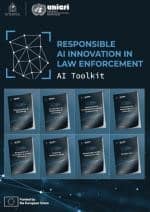
Newsletter Archive: https://unric.org/en/unric-info-point-library-newsletter-archive

